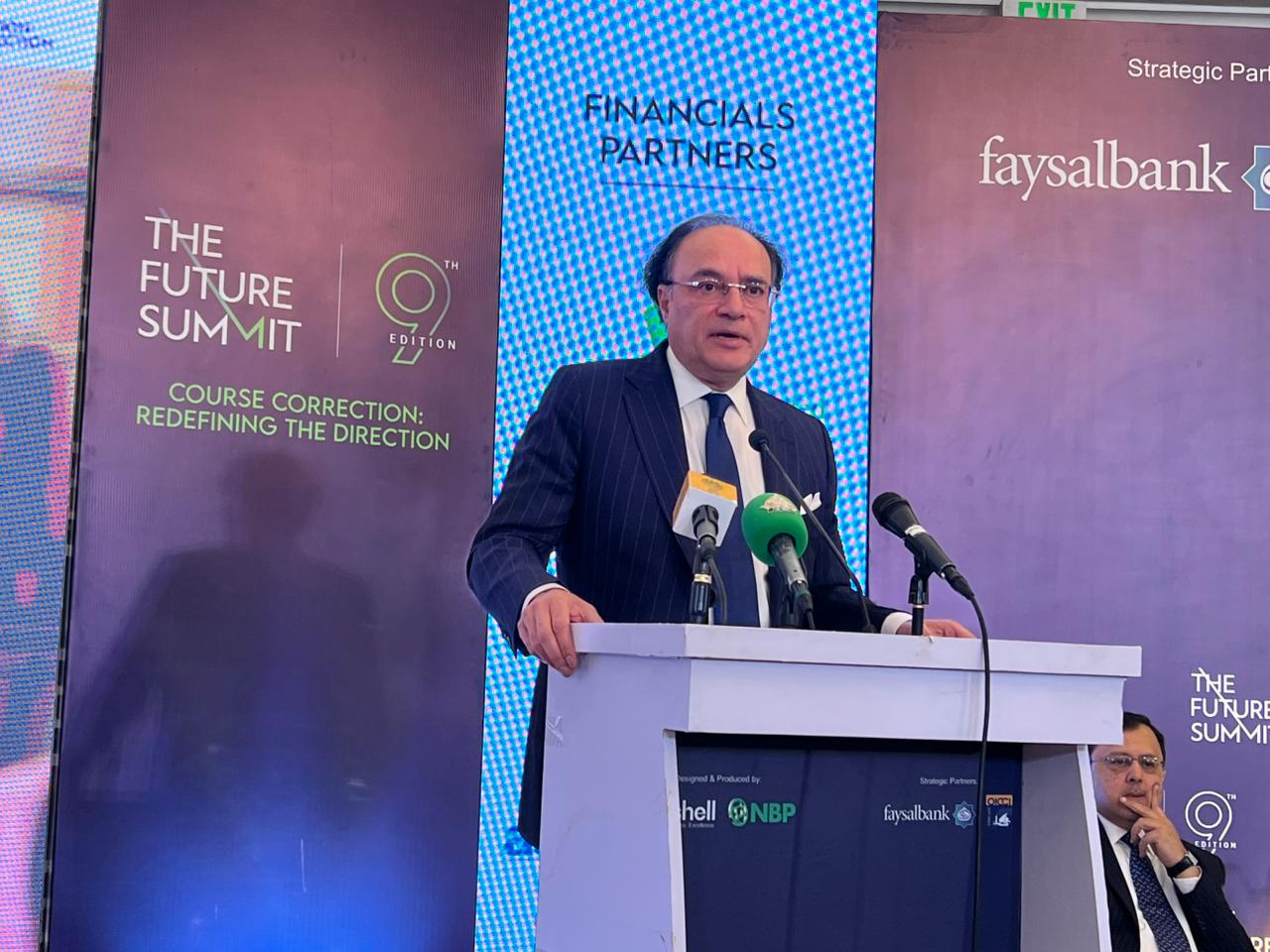
Karachi, Pakistan, November 5, 2025(News Desk): Federal Minister for Finance and Revenue, Senator Muhammad Aurangzeb, has urged a transition from reactive policymaking to a forward-looking, reform-driven approach aimed at stabilizing Pakistan’s economy, restoring investor confidence, and ensuring sustainable long-term growth. Addressing the inaugural session of The Future Summit – 9th Edition in Karachi, Senator Aurangzeb reaffirmed the government’s commitment to structural reforms, fiscal discipline, and strategic partnerships to redefine Pakistan’s economic direction and enhance its global competitiveness. Drawing on insights from recent engagements in Washington and Riyadh, the Minister noted that the global economy has shown greater resilience than expected, thanks to structural reforms and increased private sector participation. He highlighted a growing global consensus around reducing government intervention and fostering productivity-led, private sector–driven growth, supported by advancements in artificial intelligence (AI) and technology-led innovation.
Turning to Pakistan, the Finance Minister underscored that macroeconomic stability has been achieved and externally validated, with major rating agencies upgrading Pakistan’s outlook and the IMF’s second review under the ongoing program concluded successfully. He emphasized, however, that macro stability “is not an end in itself but a means to an end” — forming the foundation for sustained investment and durable growth. Highlighting encouraging indicators, Senator Aurangzeb revealed that corporate profitability in Pakistan has risen by 14% in the first nine months of 2025, while 73% of CEOs in the latest OICCI survey view Pakistan as a viable investment destination — up from 61% previously. These trends, he said, reflect growing investor confidence and an improving economic outlook. The Minister noted a “confluence of favorable factors” — including macro stability and geopolitical tailwinds — positioning Pakistan to convert bilateral support into trade and investment flows led by the private sector. He reaffirmed the government’s focus on priority sectors such as minerals and mining, IT, agriculture, pharmaceuticals, and the blue economy.
Senator Aurangzeb also welcomed Google’s decision to open an office in Pakistan and establish the country as a regional technical and export hub, emphasizing the importance of equipping youth with digital and technical skills to seize opportunities in coding, blockchain, and AI-driven industries. On structural reforms, the Minister stated that Pakistan is “no longer in a design phase but in the implementation mode.” He outlined progress in taxation, energy, state-owned enterprises, privatization, public finance management, rightsizing of government, pension reforms, and debt servicing. He cited the adoption of AI-led monitoring and invoicing systems to reduce tax leakages, the addition of 900,000 new tax filers, and World Bank recognition of Pakistan’s reform momentum. The Minister reaffirmed the government’s commitment to privatization, noting the recent acquisition of a local bank by a major UAE conglomerate, along with ongoing work on PIA and power distribution company transactions. He also shared updates on the rightsizing of federal ministries, closure of loss-making entities such as Utility Stores Corporation and PASCO, and the shift to a defined-contribution pension scheme for new government entrants.
Addressing the summit’s theme of “Course Correction,” Senator Aurangzeb emphasized the need to “stay the course on structural reforms” while urgently addressing two existential challenges: population growth and climate change. He called for a national sense of urgency to tackle population growth, child stunting, and learning poverty, and to fully utilize the $2 billion in climate-related financing available under the World Bank’s Country Partnership Framework.
Concluding his address, the Finance Minister reaffirmed the government’s resolve to sustain economic reforms, strengthen resilience, and advance a long-term reform agenda focused on sustainability and human development.